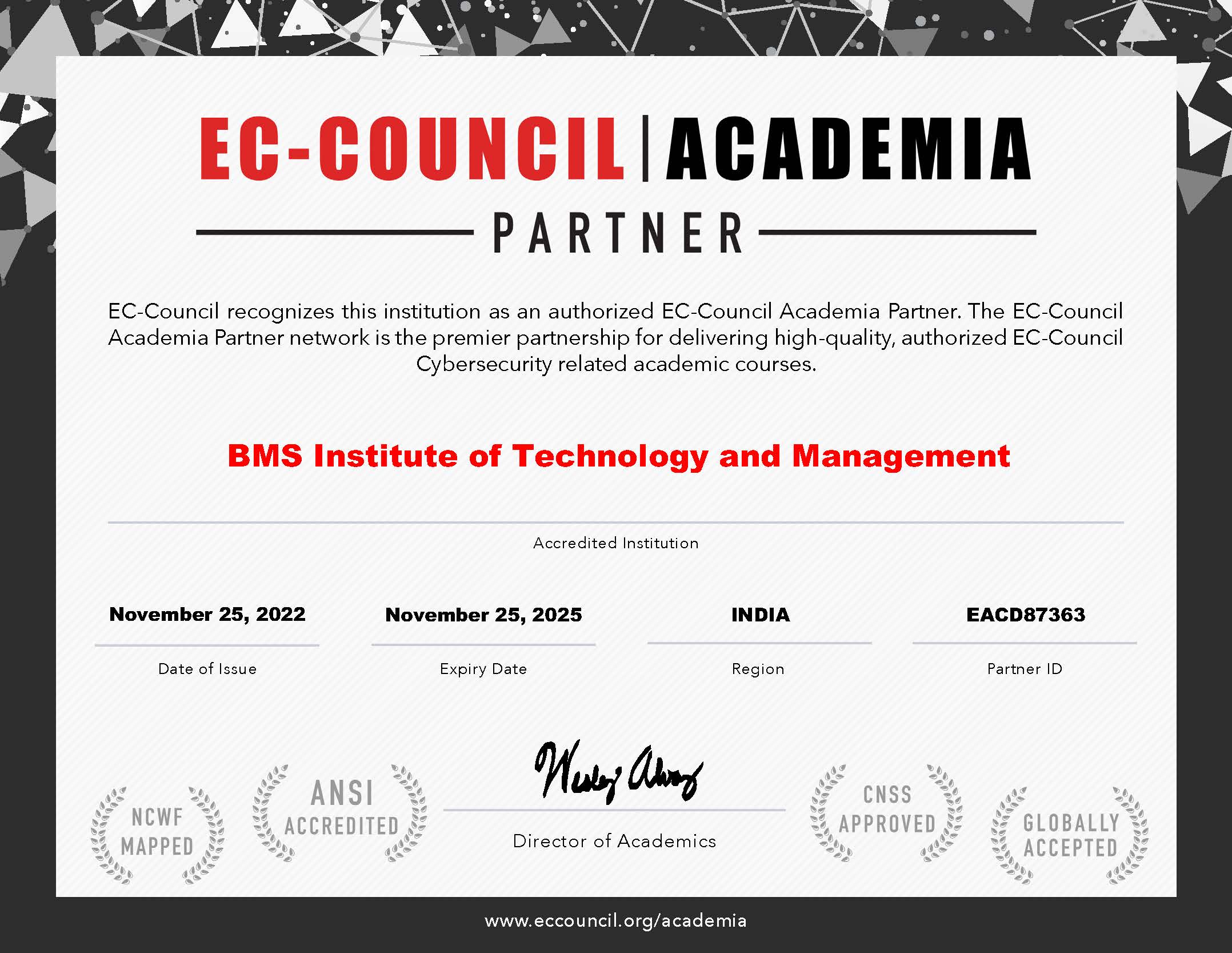M.Tech (Cyber Security) commenced in the year 2022 with an intake of 18 students. The Post Graduate Program in Cyber Security is an affiliated program offered by Visvesvaraya Technological University (VTU), Belagavi. The autonomous curriculum is designed by team of experts in the cyber security domain.
We are honoured and proud to say that we are an authorized EC-Council Academia Partner. 
Cyber Security is one of current top trends in the industry with global market of more than $200 billion. The demand for skilled professionals has increased over years is projected to grow over 20% in the next year. Lack of skilled professional is need of the hour in Indian scenarios as per job market analysis by Data Security Council of India (DSCI).
Highly experienced faculty members with doctoral degrees handle the courses for this program. Faculty members are proactively involved in high end research activities and have published impetus research publications in domains of Cyber Forensics, Network Security, AI and Data Science in Security (Cognitive). Students undergo industrial internship in many reputed companies with stipend.
| BOARD OF STUDIES: M.TECH CYBER SECURITY | ||
| Sl. No | Member | Role |
| 1. | Dr. Mohan Babu G N, Principal | Chairman |
| 2. | Dr. Anil G N, Professor and Dean Academics, CSE | Member |
| 3. | Dr. Sudhamani M V, Professor (I/C HoD-ISE) | Member |
| 4. | Dr. Arun Kumar B R, Professor, CSE | Member |
| 5. | Dr. Usha B A, Professor, ISE (Cyber Security) | Member |
| 6. | Dr. Anjan Krishnamurthy, Professor, ISE (Cyber Security) | Member |
| Industry Members on Board | ||
| 7. | Mr. Venkatesh Murthy, Director, DSCI | Member |
| 8. | Mrs. Poornima Iyengar, Head-IBM University Relations | Member |
| 9. | Mrs. Savitha Gowda, Joint Director, C-DAC | Member |
| 10. | Dr. Rajan R, CIS, Kauvery Hospital | Member |
| Academic Members from NITs/IITs/IISc | ||
| 11. | Prof. K Gopinath, Professor, IISc | Member |
| 12. | Dr. Sangram Ray, Associate Professor and HoD-CSE, NIT Sikkim | Member |
| 13. | Dr. Modi Chirag, Associate Professor, NIT Goa | Member |
| Research Member | ||
| 14. | Dr. Rajan M A, TCS | Member |
| Invitee | ||
| 1. | Dr. M C Hanumanthraju, Professor and CoE, BMSITM | |
Emerge as center of learning in the field of Information Science & Engineering with technical competency to serve the society.
To provide excellent learning environment through balanced curriculum, best teaching methods, innovation, mentoring and industry institute interaction.